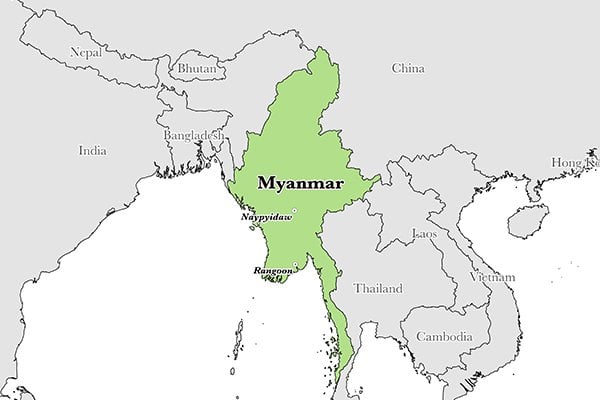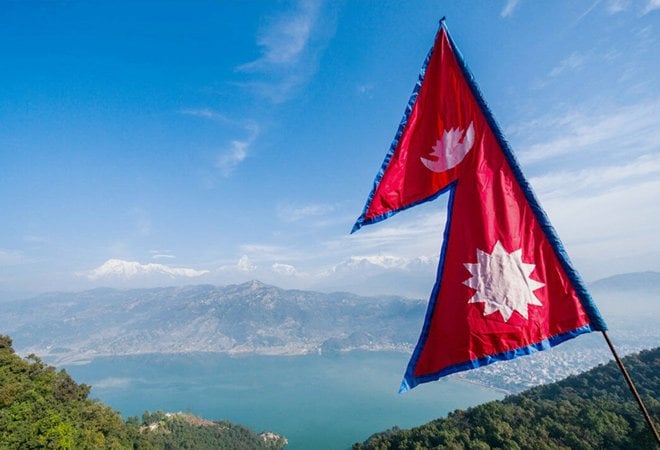China enters into new era

BY PUSHPA RAJ PRADHAN : Chinese President Xi Jinping in his address to the CPC National Congress, has extensively explained about China’s past history, contradictions in development modality, China’s hard work in the past in making China as a second largest economy and challenges for China in the days to come. More importantly, President Xi has formulated China’s foreign policy guidelines for the New Era. A few months ago, I had an opportunity to visit Beijing and interact with a group of Chinese think-tanks. We had extensively discussed on BRI and its benefit to Nepal like countries. The Chinese think-tanks had remarked: China an investment seeking country until three decades ago, has now emerged as a largest country investing abroad. Nepal can transform her economy by maximum utilization of the Chinese investment.
In different countries, China has invested for developing special economic zones with the idea of industrialization of these countries. • Along with economic prosperity in China, the labour cost has increased. Therefore, China wants to install factories in neighbouring countries to reduce the production cost. Therefore, China is supporting neighbouring countries to establish special industrial zones. During my stay in Beijing, I also had the opportunity to hold a brief meeting with our ambassador to China Lilamani Poudel. Ambassador Poudel had remarked that China is seeking a market for her huge production in the neighbouring countries. If the neighbours are poor, they cannot afford Chinese products. Therefore, first of all, China wants to make her neighbours rich so that they can consume Chinese products.
The main theme of BRI is making rich her neighbouring countries, he had remarked. In the meantime, Poudel had disclosed the fact that in spite of China’s eagerness for investing in Nepal, Nepal might be ranked at last number among the beneficiaries in the Asian countries. Poudel had remarked, none of the countries will face loss from the BRI project. Among the South Asian countries, Pakistan, Bangladesh, Sri Lanka, Maldives, Afghanistan and even India are the beneficiaries from their bilateral relations with China, he had explained. Although, India has not joined BRI, she has been enormously benefited from Indo-China bilateral relations, the Nepali envoy said. In the recent past, Chinese ambassador Yu Hong gave a presentation on National Congress of CPC and Nepal-China relations. She had made the following remarks: Today, China is in an important juncture due to her stable and positive economic development. China has remained second biggest economy in the world since 2010. She briefed on President Xi’s doctrine for China’s prosperity and global cooperation.
The New Era: CPC has achieved tremendous accomplishments after a long struggle. China is now standing at a brand-new historical starting point. Beginning of New Era: • For the cause of socialism with Chinese characteristics; • For securing a decisive victory in building of a moderately prosperous society in all respects and a great modern socialist country; • For the better life, ultimately achieving common prosperity for everyone; • For realizing the Chinese Dream of national rejuvenation; • For China to move closer to center stage of the world and making greater contribution to mankind. • With decades of hard work, socialism with Chinese characteristics China has crossed the threshold into a new era. • This is a new historic juncture in China’s development. The New Thoughts: President Xi Jinping’s thoughts on socialism with Chinese characteristics in the new era has established as the long-term guiding thoughts of CPC. Overreaching goals: • To realize socialist modernization and national rejuvenation. • To build China into a great modern socialist country that is prosperous, strong, democratic, culturally advanced, harmonious and beautiful by the middle of the century. The Overall Plan:
To promote, coordinated economic, political, cultural, social and ecological advancement. Foreign Policy: Chinese diplomacy with Chinese characteristics aims to foster a new type of international relations and build a community with a shared future for mankind. The New Journey: The Five new journeys: Deepening reform across the board and unleashing dynamism for development; Moving with the times and Innovative development exploring new mode of development; ☆ Towards greater integration with the world and an open economy of higher standards; Towards a better life for the people; Towards a new type of international relations and a community with a shared future for mankind. The Major Country Diplomacy with Chinese Characteristics for a New Era and China-Nepal Relations: • A new type of international relations with mutual respect; Fairness and Justice; Win-win cooperation A community with a shared future for mankind: Build an open, inclusive, clean, and beautiful world that enjoys lasting peace, universal security, and common prosperity. The principles and policies of Chinese Diplomacy for a New Era: Peace, development, cooperation, mutual benefit. Safeguard world peace and promote common development; Five principles of peaceful coexistence. New strategies of Chinese Diplomacy: ① Foster a new type of international relations and build a community with a shared future for mankind; Follow a Path of Peaceful Development; Clarify the new principles and new requirements China will deepen relations with its neighbors in accordance with the principle of amity, sincerity, mutual benefit, and inclusiveness and the policy of forging friendship and partnership with its neighbors. Actively promote international cooperation through the Belt and Road Initiative: The Belt and Road Initiative five principles: – The purposes and principles of the UN Charter and the Five Principles of Peaceful Coexistence. – Opening up and cooperation – Harmony and inclusiveness – Market operation
Mutual benefit Nepal- China Relations: China-Nepal relations are based on equal treatment; Mutual support; Common development. Chinese focus on areas of cooperation: • Construction of Cross Border Railway; • Improvement of Araniko Highway and Rasuwagadhi-Syafrubesi Highway; • Operation of three Dryports: Zhangmu (Tatopani); Gyirong (Rasuwa) and Purang (Yari) Four Areas of mutual cooperation and economic partnership: • Trade and investment; • Post-disaster reconstruction; • Energy and tourism and • People-to-people exchanges. My Conclusion: • In today’s global society, Nepal cannot remain aloof from developing economic partnership with China which is based on “win, win” position for both the countries. Even if the governments in Nepal will perform reluctance in developing economic partnership with China, it would face strong pressure from the people against such an attitude. • China wants Nepal be the transit country between China and India. Nepal, equipped with necessary infrastructures, will obviously become the transit country between India and China even if India may not like it. • As Nepal is bordered with China’s Tibet Autonomous Region, the Tibetans in China and those Tibetans staying in Nepal will have the opportunity to coordinate and take the lead role in trade with Nepal and India with the fact that Nepal’s trade with China will be via Tibet. • Nepal is existed in between the two giant countries – one, world’s second largest economy, another, emerging economy in Asia. Therefore, Nepal cannot remain aloof from the development of the two next door neighbouring countries. • China is Nepal’s trustworthy friend seeking Nepal’s economic transformation and China is ready to help Nepal in developing infrastructure sectors including hydropower, road, cross border railway, among others.
China wants to see political stability and economic prosperity in Nepal. • China wishes to see Nepal as bridge between India and China on trade. • Therefore, this is an important time for Nepal to grasp the opportunity. (Excerpts of a presentation by Pradhan at a conference on the 19th NCCPC to lead China Tibet to a new era responding to the OBOR Initiative, building community of common destiny by China and Nepal.)




_rcn1YzUXpY.jpg)





Leave Comment